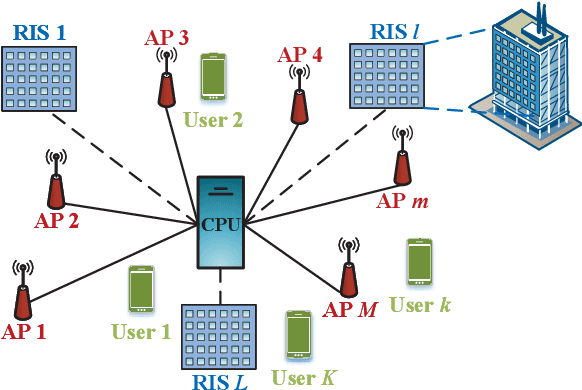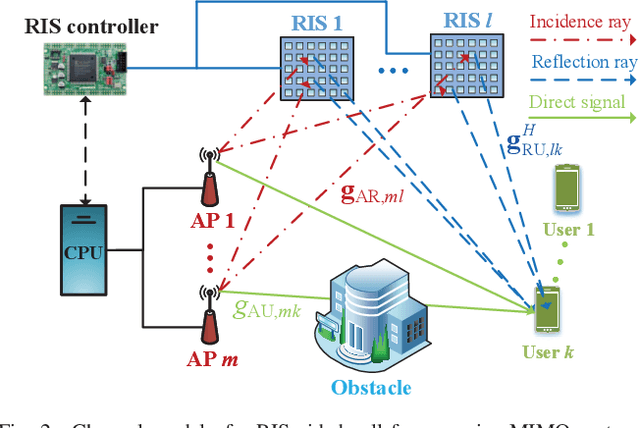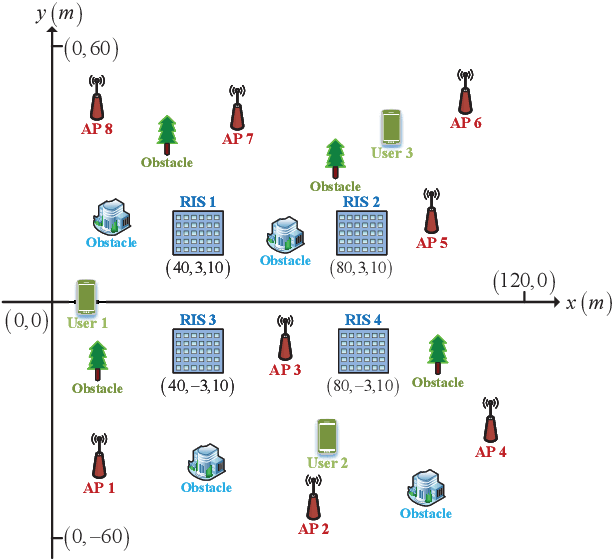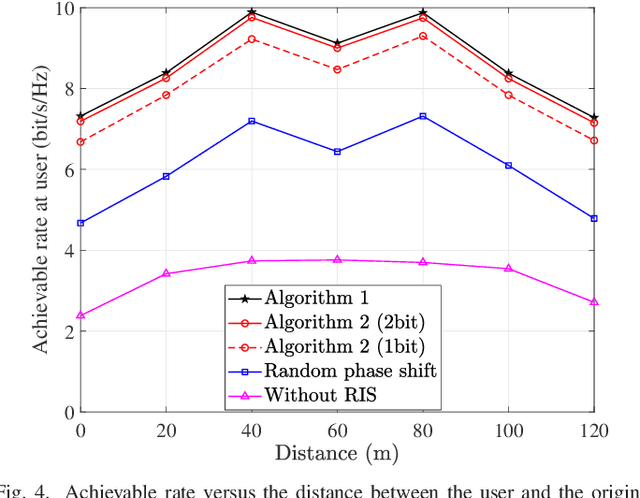RIS-Aided Cell-Free Massive MIMO Systems: Joint Design of Transmit Beamforming and Phase Shifts
Paper and Code
Dec 13, 2021



This paper studies RIS-aided cell-free massive MIMO systems, where multiple RISs are deployed to assist the communication between multiple access points (APs) and multiple users, with either continuous or discrete phase shifts at the RISs. We formulate the max-min fairness problem that maximizes the minimum achievable rate among all users by jointly optimizing the transmit beamforming at active APs and the phase shifts at passive RISs, subject to power constraints at the APs. To address such a challenging problem, we first study the special single-user scenario and propose an algorithm that can transform the optimization problem into semidefinite program (SDP) or integer linear program (ILP) for the cases of continuous and discrete phase shifts, respectively. By solving the resulting SDP and ILP, we first obtain the optimal phase shifts, and then design the optimal transmit beamforming accordingly. To solve the optimization problem for the multi-user scenario and continuous phase shifts at RISs, we extend the single-user algorithm and propose an alternating optimization algorithm, which can first decompose the max-min fairness problem into two subproblems related to transmit beamforming and phase shifts, and then transform the two subproblems into second-order-cone program and SDP, respectively. For the multi-user scenario and discrete phase shifts, the max-min fairness problem is shown to be a mixed-integer non-linear program (MINLP). To tackle it, we design a ZF-based successive refinement algorithm, which can find a suboptimal transmit beamforming and phase shifts by means of alternating optimization. Numerical results show that compared with benchmark schemes of random phase shifts and without using RISs, the proposed algorithms can significantly increase the minimum achievable rate among all users, especially when the number of reflecting elements at each RIS is large.
 Add to Chrome
Add to Chrome Add to Firefox
Add to Firefox Add to Edge
Add to Edge